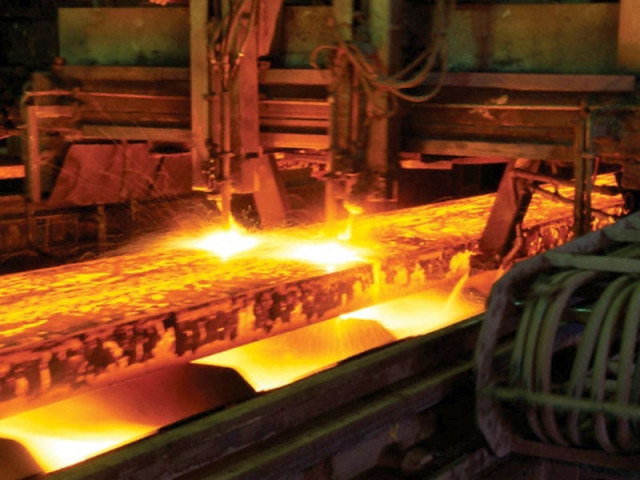Risk aversion: Steel re-rolling mills find way to avoid losses
Import coal-gas plants from China to boost output that has dropped 60%.

Operators of steel re-rolling mills have found a way to stave off production and job losses caused by gas shortage as some of them have imported coal-gas plants from China to keep the mills running, industry officials say.
Steel production from the country’s re-rolling mills has dropped 60 per cent to four million tons compared to installed capacity of around 10 million tons because of persistent energy shortage and slowdown in infrastructural development. Energy accounts for 30 per cent of the production cost of the industry due to outdated technology.
So far, six steel mills have imported coal-gas plants, which convert coal into gas for consumption by the units to keep their plants running.
“Although these plants are costly, priced at around Rs25 million and operational cost is 15 per cent higher than the price of gas supplied by Sui Northern Gas Pipelines Limited (SNGPL), we still prefer to run our operations with the help of these plants,” Kashif Younis Mehar, a member of Pakistan Steel Re-rolling Mills Association and Vice-President of Lahore Chamber of Commerce and Industry told The Express Tribune.
He said this would keep the industry alive and boasted that steel prices had not been increased despite the high production cost.
He expected the mills to start importing the plants on a large scale in the next two to three years provided the government cooperated with the industry. If government cooperation was not available, “then we may enter into joint ventures with Chinese manufacturers and may be able to manufacture the plants ourselves at a later stage, which will reduce the cost and enable small and medium-size steel industries to continue operations round the clock,” he added.
According to Mehar, around 80 per cent of steel production is concentrated around major cities of Punjab including Lahore, Gujranwala, Sheikhupura, Multan and DG Khan, which have faced the brunt of gas shortage.
He said only the manufacturers of agricultural equipment and engineering goods were the main steel buyers these days while construction industry and infrastructure developers were facing a slump in activity. In the international market too, opportunities were shrinking for small players, like Pakistan.
Pakistan mainly produces long steel products, of which the share of flat products is 1.5 million tons. Gap between supply and demand of steel products is two million tons.
The steel industry is dominated by small and medium-scale re-rolling mills, engaged in re-rolling, forging and arc furnace melting activities that are not only energy-intensive but also have substantial environmental externalities.
According to Mehar, investment has been made to such an extent that the re-rolling mills can work for around 20 hours per day, but they are operating at only eight hours per day. In fact, many mills have stopped work due to non-availability of electricity and gas.
Jobs in the industry had also gone down from around 600,000 to 150,000 people, thanks to energy shortage, economic slowdown, law and order, high cost of doing business and higher interest rates, he said.
Published in The Express Tribune, December 28th, 2011.



1733130350-0/Untitled-design-(76)1733130350-0-208x130.webp)















COMMENTS
Comments are moderated and generally will be posted if they are on-topic and not abusive.
For more information, please see our Comments FAQ